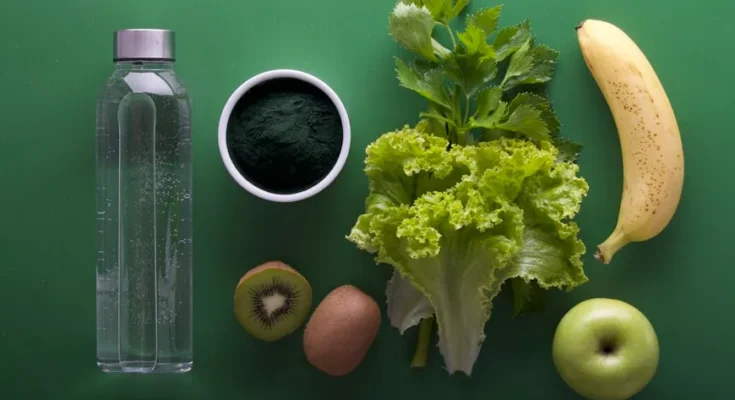Understanding Health in the Modern World:
Once upon a time, health was simply the absence of disease. You weren’t sneezing, limping, or coughing? Great, you were “healthy.” But today, health is so much more than that. It’s a dynamic, multi-dimensional state of being that blends physical stamina, emotional resilience, mental clarity, and even a dash of spiritual grounding. The World Health Organization defines health as “a state of complete physical, mental and social well-being, and not merely the absence of disease or infirmity.”
It’s no longer about just surviving — it’s about thriving.
We live in a time where information flows faster than blood through our veins. While access to health advice has never been easier, the paradox is that we’re often more confused than ever. One day eggs are bad, the next day they’re the best protein you can get. Between trends like intermittent fasting, keto, and “clean eating,” people are overwhelmed by choices.
In this hyper-connected age, the true challenge isn’t access — it’s clarity. Health today is about filtering noise and making informed, personalized choices.
The Foundation of Physical Health:
- Movement
Let’s be honest: the word “exercise” can feel daunting. It conjures images of early alarms, overpriced gyms, and endless squats. But movement? That’s more natural. Our bodies were designed to move — to stretch, bend, lift, walk, run, and dance. You don’t need to run a marathon to be healthy. Regular walking, stretching while watching TV, or dancing in your kitchen all count.
The real goal is consistency, not perfection. Movement should be woven into daily life like your morning coffee or brushing your teeth.
- Nutrition
Imagine your body as a high-performance machine. Would you fuel a Ferrari with low-grade gas? Of course not. Yet, so many of us run on sugar crashes, caffeine jolts, and processed convenience. Real food — vegetables, fruits, grains, proteins, and healthy fats — provides not just energy, but also information. Yes, food communicates with your genes, your gut, your brain.
Eating isn’t just about calories. It’s about chemistry. Your gut microbiome, immune system, and brain function are all directly linked to your plate.
- Sleep
In a world that glorifies hustle, sleep is often the first casualty. But the truth is, your body performs miracles during rest. It detoxifies the brain, repairs tissues, balances hormones, and resets your emotional compass.
Poor sleep isn’t just about being tired. It’s been linked to obesity, heart disease, depression, and even Alzheimer’s. Prioritizing good sleep hygiene — regular bedtime, reducing screen time, and creating a calm environment — is an investment in every area of your health. For practical, science-backed tips on improving your sleep, explore the National Institutes of Health (NIH) page on “How to Get a Good Night’s Sleep”.
Mental and Emotional Well-Being:
- The Mind-Body Connection
You can’t separate the brain from the body not in health, not in anything. When you’re stressed, your body reacts. Your heart races, digestion slows, your muscles tense. Chronic stress can weaken immunity, increase blood pressure, and cause inflammation.
Mental health is physical health. That means caring for your mind — through therapy, mindfulness, journaling, or simply talking to someone — is just as critical as going to the gym.
- The Power of Purpose and Perspective
Have you ever noticed how some people seem to glow from the inside out, even without a perfect body or flawless diet? Often, they have one thing in common: a sense of purpose. Purpose fuels passion, gives meaning to pain, and anchors you in life’s storms.
Gratitude and perspective also act like invisible vitamins. They don’t show up on blood tests, but they can change your entire health narrative. Choosing optimism — not the naive kind, but the brave, steady kind — can literally rewire your brain and reduce inflammation.
Social Health:
- Connection Matters
Humans are social creatures. Studies consistently show that strong social ties reduce the risk of disease, depression, and even early death. Loneliness, on the other hand, has been likened to smoking 15 cigarettes a day in terms of its health impact.
Friendships, family bonds, community involvement these aren’t just feel-good extras. They’re medicine. Regular phone calls, shared meals, and honest conversations can heal in ways that pills never will.
- Setting Boundaries for Well-being
Ironically, while connection is vital, so is learning to say no. Emotional exhaustion often comes from over-commitment and people-pleasing. Healthy boundaries protect your energy and keep your relationships honest. They help you show up as your best self, not a burnt-out version of you.
Self-care isn’t selfish. It’s how you preserve your health so you can continue to give to others meaningfully.
The Role of Preventive Health:
- Checkups and Screenings
Waiting for illness to strike before acting is like waiting for your engine to explode before changing the oil. Preventive care — regular checkups, blood work, dental visits, and screenings helps catch issues early and gives you control over your future. The Wikipedia page on Preventive Healthcare outlines how early detection can significantly reduce risk.
Knowing your cholesterol, blood pressure, vitamin D levels, and other key markers is like having a roadmap. It empowers you to make better lifestyle decisions with measurable impact.
- Small Habits with Big Impact
The little things add up. A 10-minute walk. Drinking water instead of soda. Choosing stairs over elevators. These micro-decisions shape your macro-reality. You don’t need to overhaul your life overnight. Just start with one habit and build from there.
Health isn’t a destination. It’s a daily practice. And it doesn’t have to be perfect — just intentional.
Embracing a Holistic Lifestyle:
- Integrating Mind, Body, and Soul
Real health isn’t compartmentalized. It’s integrated. It’s not just about your weight or cholesterol levels — it’s about how you feel when you wake up, how you connect with others, how deeply you breathe, how fully you laugh.
Practices like yoga, meditation, breathwork, and nature walks can align your internal and external worlds. They cultivate awareness, which is the foundation of all meaningful change.
- Health as a Lifelong Journey
There’s no finish line in health. No point where you’re “done.” That’s the beauty of it — it’s a lifelong dance between growth, challenge, and self-discovery. Some days you’ll feel like a wellness warrior. Other days you’ll eat a pint of ice cream in your pajamas. Both days are okay.
What matters is returning to yourself with kindness, again and again.
Conclusion:
Health isn’t something you find. It’s something you create. Every choice, every breath, every thought is a brushstroke on the canvas of your well-being. And while genetics and circumstances play a role, your habits — especially the ones born out of love, not fear — shape the life you live.
So don’t chase perfection. Chase presence. Don’t aim for Instagram-worthy wellness. Aim for real, grounded, joyful living. Because in the end, health is the art of staying alive — fully, deeply, and consciously.




